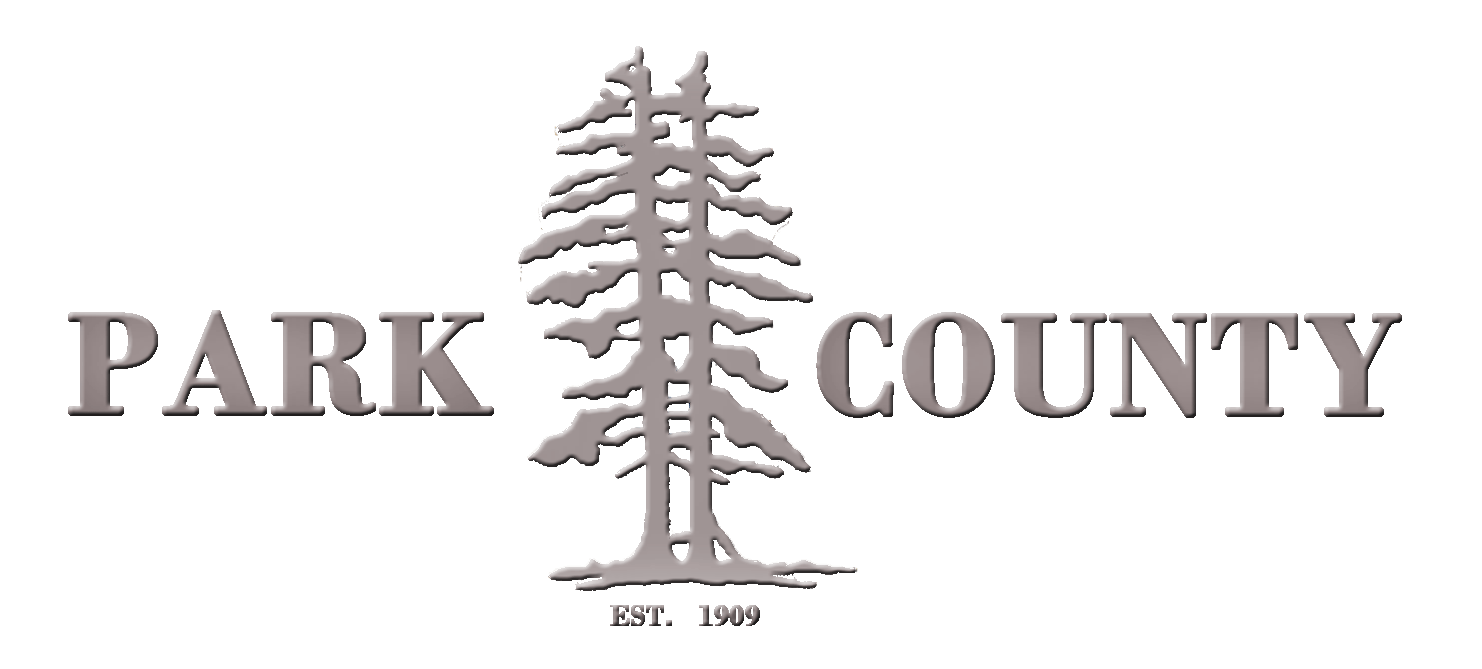District Court Clerk
Welcome to Park County’s Clerk of District Court page. My staff and I are here to answer questions and assist you in a friendly, courteous, professional manner to the best of our ability and within the scope of our authority on your District Court business.
The Clerk of District Court’s Office is dedicated to efficiently and effectively assisting the citizens of Park County and all other individuals or agencies in need of our services. However, we are not attorneys and Wyoming Statute §5-3-213 prohibits the Clerk of Court or Deputy Clerks from giving legal advice.
Staff
| Deb Carroll | District Court Clerk |
| Jessica Goodwin | First Deputy |
| Karen Herburger | Clerk |
| Elizabeth Wolny | Clerk |
| Erin McCall | Clerk |

Debra Carroll
District Court Clerk
- Cody: 307-527-8690
- Powell: 307-754-8690
- Toll Free: 800-786-2844 ext. 8690
- Office Hours: 8:00 a.m - 5:00 p.m., Monday - Friday
- Deb Carroll
Online Payments
***DO NOT USE***
for Park County Circuit Court Citations and Fines
Park County District Court Child Support
Park County District Court Fines & Fee
Who is the Clerk of Court?
Role of the District Court Clerk
Simply stated, the role of the Clerk of Court is the keeper of the official court record. The clerks’ duties vary in the Municipal, Circuit, District and Supreme Courts because the responsibilities of each court are different. The Wyoming Statutes and the Wyoming Court Rules specifically define some of the clerks’ duties in each of these courts. The Municipal, Circuit and Supreme Court Clerks are appointed by the judges of those courts. The District Court Clerk is a constitutional position and in each county a District Court Clerk is elected by the registered voters every four years in the general elections.
Each clerk maintains the records and books of the court, receives all cases filed therein, properly records and attends to the same, and has the care and custody of all the records, seal, books, papers and property pertaining to that office or court. They receive, account for and pay over all money that comes into the possession of the court according to law, and under the orders or decrees of the court. The clerk maintains the records in criminal cases, including receipting and distributing restitution and fines.
The Wyoming Supreme Court serves as an appellate court. The function of this court is to review the actions of a lower court in order to correct perceived errors or injustice. The Clerk of the Supreme Court dockets the paperwork in appealed cases, receives the court records from the district court clerks, monitors the case time line and assists the public and attorneys in the appeal process. The District Court also serves as an appellate court for the judicial review of administrative agency decisions and appeals from the courts of limited jurisdiction. Therefore, the clerk of each court has a role in the appellate process and must comply with the appellate rules of procedure for handling the records of an agency or court from which the appeal is brought, either in submitting records from the clerk’s court to a higher court or in receiving records from an agency or lower court.
The clerks in Circuit or Municipal Courts, courts of limited jurisdiction, are responsible for the records in misdemeanor criminal matters. Circuit Court clerks also handle records in civil matters with monetary values less than $50,000. The clerks in Municipal Courts deal only with records for cases dealing with violations of municipal ordinances. In addition to civil matters over $50,000 and felony criminal cases, the District Court Clerk is responsible for the records in all other miscellaneous civil matters, family law, juvenile, probate, and adoption cases.
The Clerk of District Court has the duty of receiving and distributing child support and accepting passport applications. Circuit and District Court clerks are in charge of selecting and maintaining a jury panel for each term of court.
The clerk of court is often asked to help or advise persons about how to proceed before the court in a pending case. The role of the clerk as the record-keeper of the court is clearly defined by law; although each clerk may have considerable knowledge of the law and legal proceedings, their role is not to act as a legal advisor or to provide legal guidance to parties in matters before the court. The clerk may guide persons on strictly procedural concerns such as fees, filing documents, number of copies to be submitted, and other related aspects of the roles and duties of the clerk’s particular office. It is against Wyoming Law for the clerks to give legal advise. W.S. § 5-3-213.
History of the District Court
Park County was established in 1911. The first Clerk of District Court was George S. Russell. Mr. Russell died in 1922 and his daughter, Orilla Downing Hollister was appointed to fulfill his term of office. She served until January 3, 1967. Audrey Kinkade Todd served as Clerk of District Court from January 1967 until January 1975. Lorraine S. Christler was the Park County Clerk of District Court from January 1975 until July 1992. Joyce Boyer was appointed to fulfill the remainder of her term and has been reelected to serve as Park County Clerk of District Court since 1994. Upon the retirement of Joyce Boyer in 2014, Patra Lindenthal was elected Clerk of District Court.
Court Records & Confidentiality
Many people are not aware that they can look at most court records. Public access to court records and court proceedings is constitutionally guaranteed except in limited circumstances. By State and Federal law, certain types of cases are provided almost complete confidentiality of both the proceedings and records of the court, such as in Juvenile Court cases or adoptions. In certain other instances, a court can order all or part of its records and/or proceedings in a case be closed to the public.
Under the Wyoming Juvenile Justice Act, Juvenile Court records are confidential and protected from public view. Juvenile Court proceedings, unless a jury trial is demanded, are also closed and protected from public view. The exclusion of the public from access to information in Juvenile Court records and proceedings is constitutionally permissible because the states have an interest in protecting the best interest of children.
Similarly, adoption proceedings are confidential and upon adoption, all the records are sealed. Wyoming law allows for the appointment of a confidential intermediary (see forms) who has special training if, after the adoption records are sealed, an adult adoptee or an adoptee’s adoptive or biological parents requests access the court records to locate biological relatives or information regarding the biological parents’ medical or family history. The contents of the adoption record may not be revealed to anyone other than the confidential intermediary and the information therein regarding identities may only be released by the confidential intermediary with permission from all parties with an interest in protecting their own identities.
There are several types of civil cases that are inaccessible to the general public. Cases involving mental health issues and workers’ compensation matters are confidential. Court cases opened to determine the risk posed to the public by persons who have been convicted of sex crimes are confidential during the assessment process. The court records in a civil suit for the establishment of paternity are confidential with the exception of the final judgment in the matter. Within court records open to the public, any medical, psychological, sociological, financial, school, welfare and/or internal revenue records which are filed with the court remain confidential and will be sealed from public view.
Certain criminal proceedings and court records may be closed to the public if confidentiality is mandated by a court order. Access to criminal proceedings involving the sexual molestation of a minor victim may be limited or otherwise restricted by the court if confidentiality of the victim’s identity is requested by the minor victim or on behalf of the minor by a guardian or a prosecutor. The court will accommodate the request and order the file closed to the general public, although it may allow the press access to report on the criminal charges therein against the defendant, contingent upon not disclosing, in any form, information which would reveal the minor victim’s identity.
Court records which are not open to the public make up a very small percentage of a court’s total records. The majority of court records are public records which are open for inspection. There are many circumstances from choosing a child care provider to genealogy research which would warrant a trip to the Clerk of Court office for the municipal, circuit or district courts to research the information available in criminal, civil or probate records.
Document Price List
- Divorce with Minor Children
- Divorce without Minor Children
- Answer with Minor Children
- Answer without Minor Children
- Modification of Child Support
- Modification of Child Custody
- Establishment of Custody, Visitation, and Child Support
- Abatement Forms & Procedures
- Guardianship of a Minor
- Guardianship of an Adult
- Name Change (Adult/Minor)
